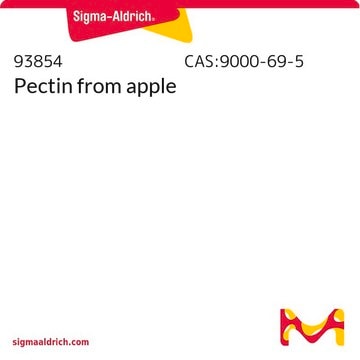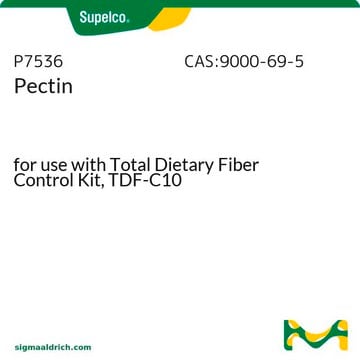P3850
Polygalacturonic acid sodium salt
from citrus fruit, ≥75% (titration)
Sinónimos:
Polyanhydrogalacturonic acid, Sodium polypectate
About This Item
Productos recomendados
biological source
citrus fruit
Quality Level
assay
≥75% (titration)
form
powder
color
white to light brown
solubility
water: 10 mg/mL, hazy to turbid, faintly yellow to yellow
cation traces
Na: 6.5-10.5% (ICP)
storage temp.
room temp
¿Está buscando productos similares? Visita Guía de comparación de productos
General description
Application
Biochem/physiol Actions
Other Notes
Storage Class
11 - Combustible Solids
wgk_germany
WGK 3
flash_point_f
Not applicable
flash_point_c
Not applicable
ppe
Eyeshields, Gloves, type N95 (US)
Certificados de análisis (COA)
Busque Certificados de análisis (COA) introduciendo el número de lote del producto. Los números de lote se encuentran en la etiqueta del producto después de las palabras «Lot» o «Batch»
¿Ya tiene este producto?
Encuentre la documentación para los productos que ha comprado recientemente en la Biblioteca de documentos.
Los clientes también vieron
Nuestro equipo de científicos tiene experiencia en todas las áreas de investigación: Ciencias de la vida, Ciencia de los materiales, Síntesis química, Cromatografía, Analítica y muchas otras.
Póngase en contacto con el Servicio técnico










